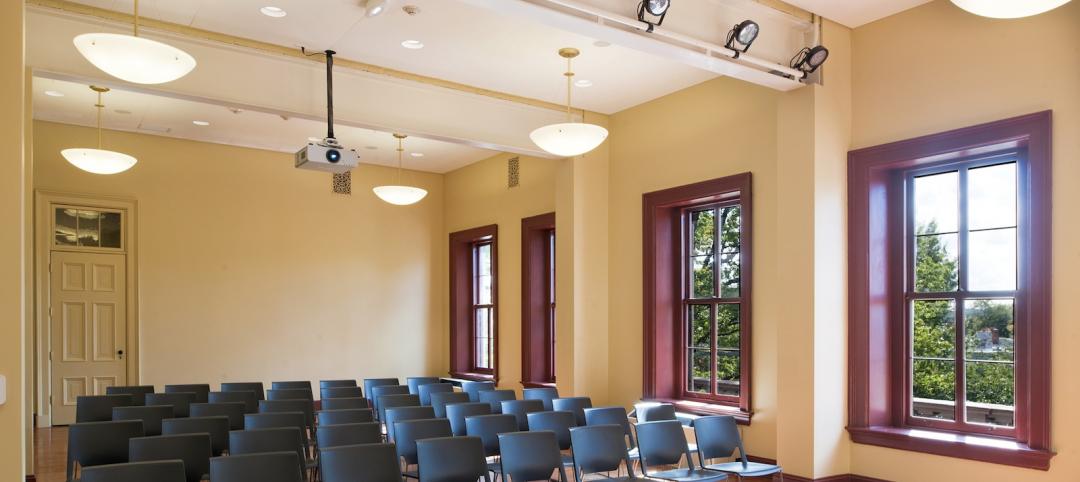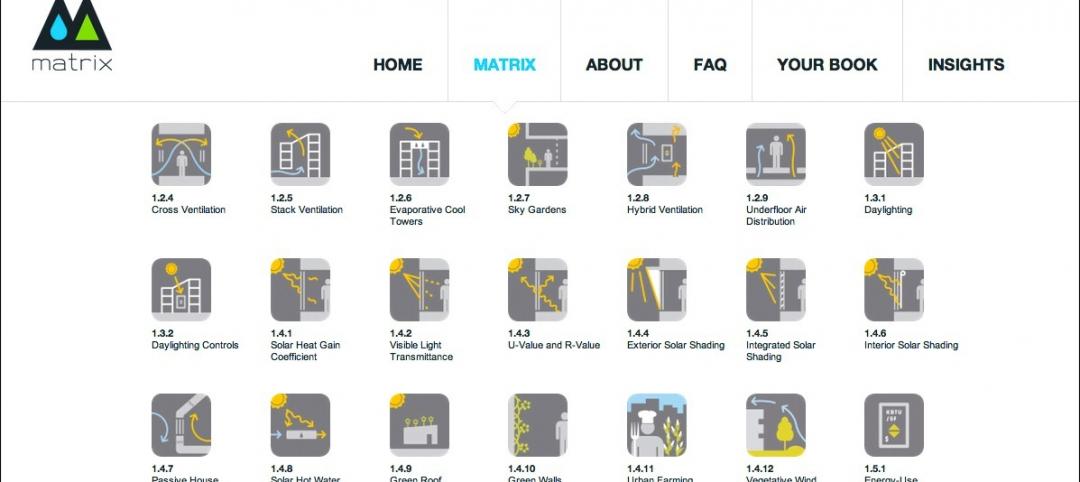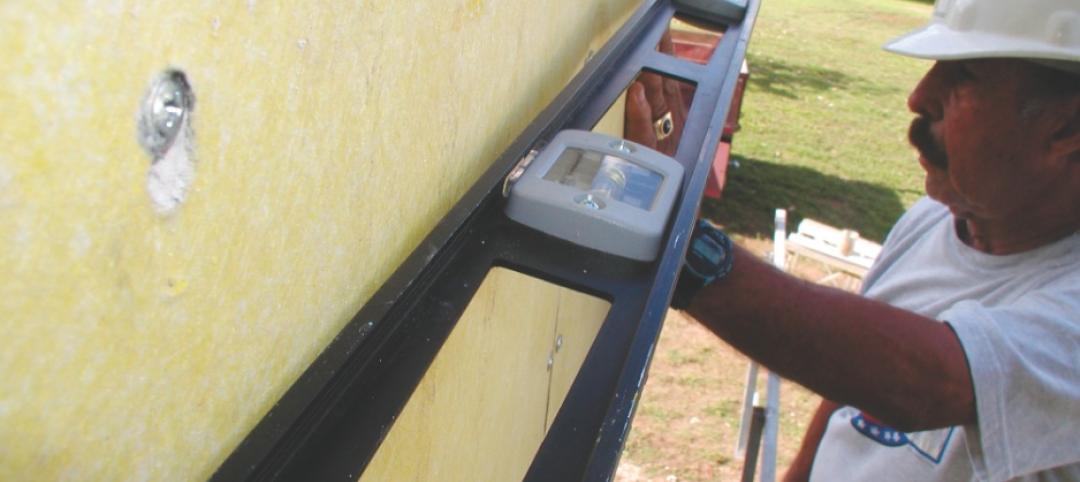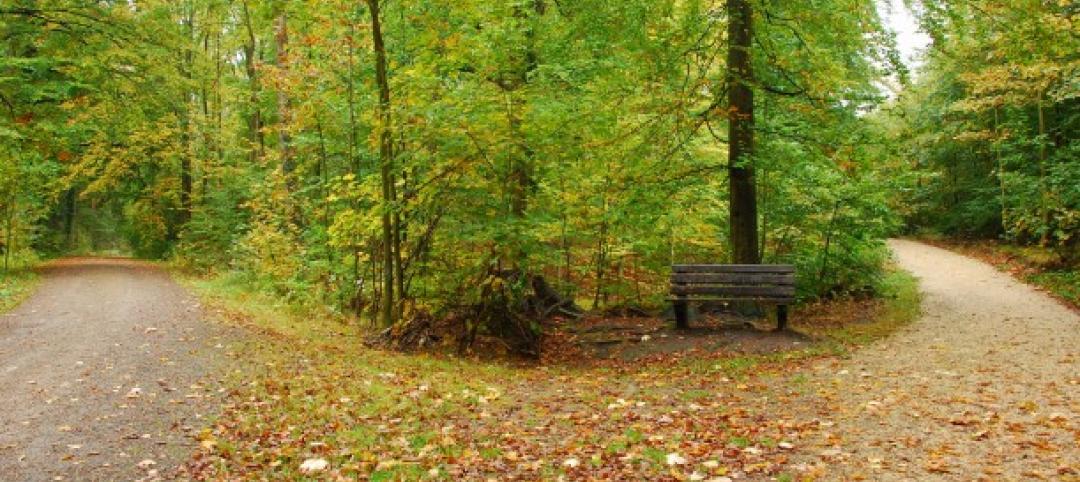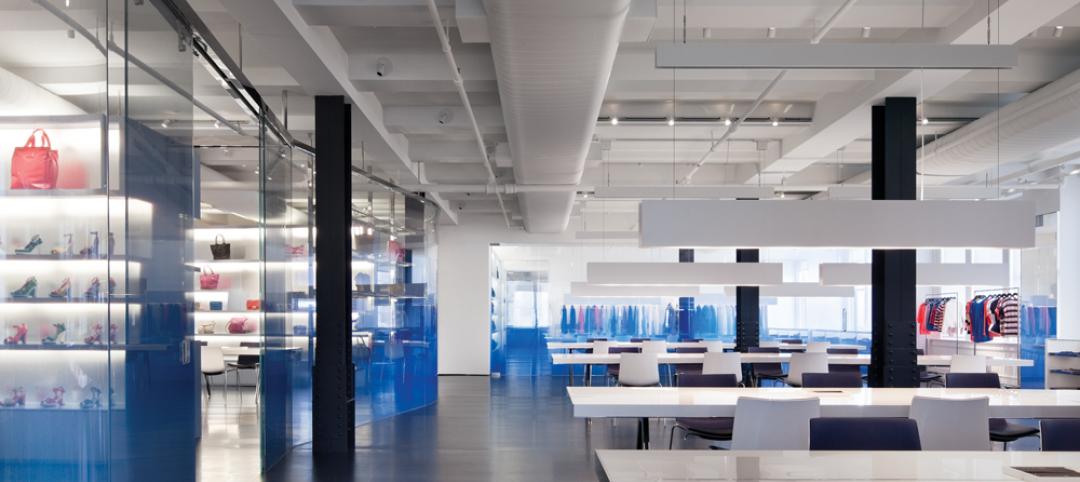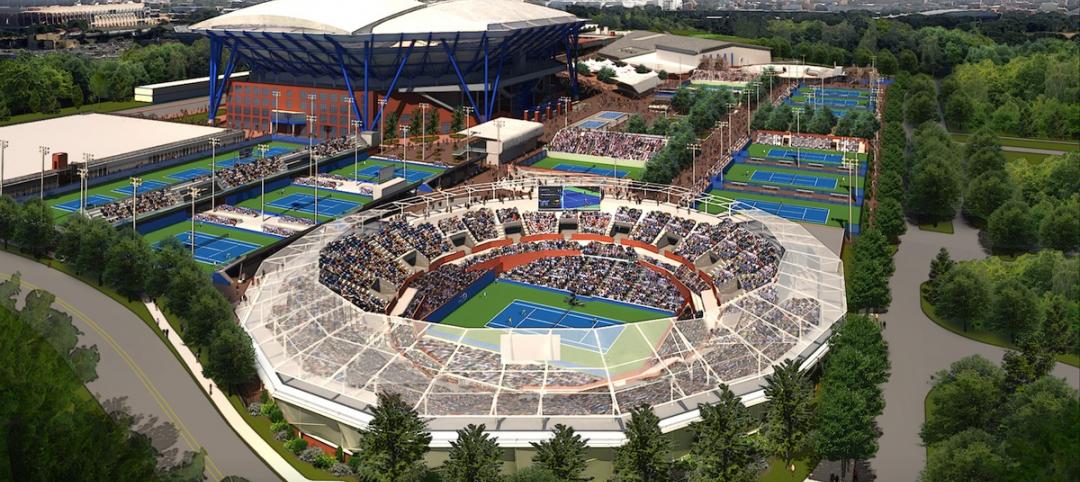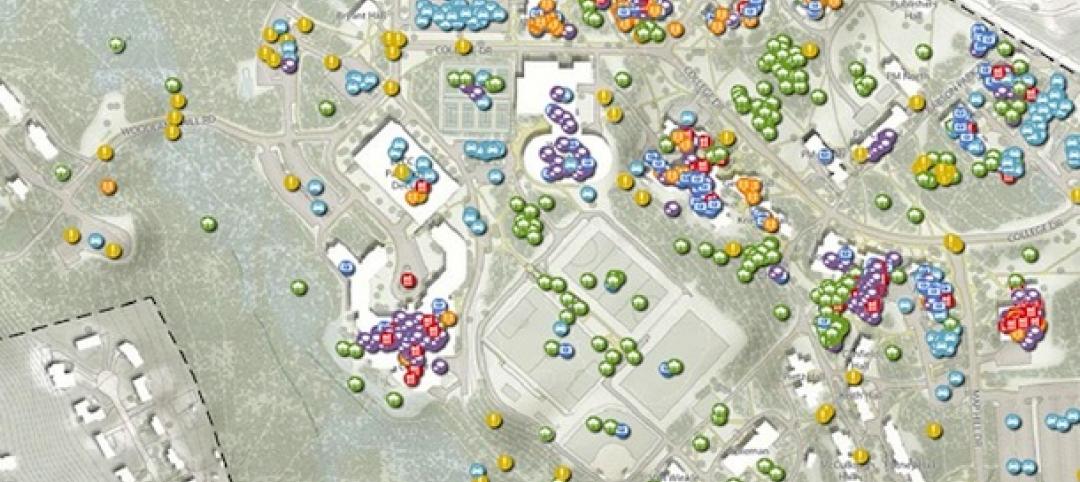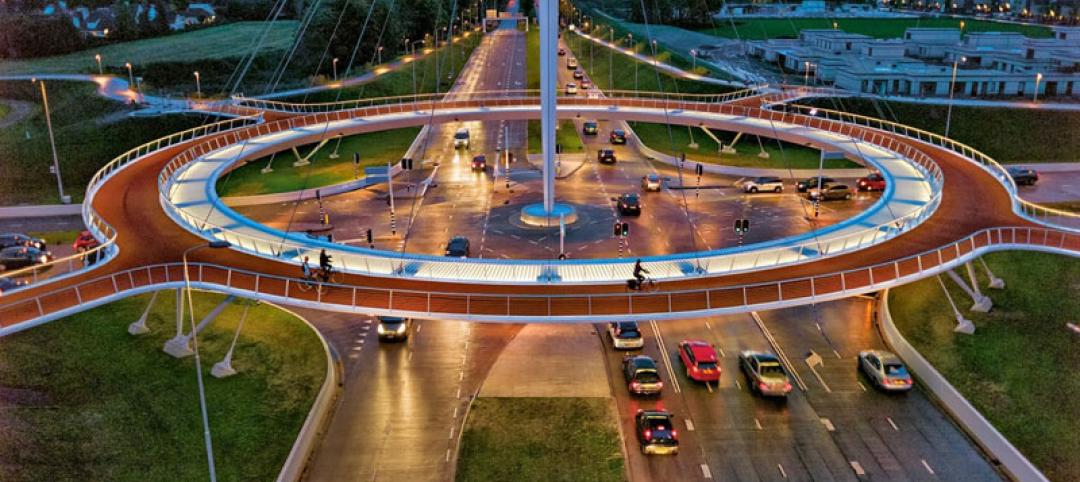Harvard University’s Ray Lavietes Pavilion, the second-oldest basketball arena in NCAA Division I, has received a $15.5 million, 35,556-sf restoration, renovation, and new construction initiative.
21st century amenities were woven into the existing building fabric in an effort to celebrate the intimacy and historic charm of the venue. Included in the update is a new entrance arcade and program space below the bleachers. The space below the bleachers was created by making the top portion of the bleachers fixed and the lower part retractable. This allowed for toilet rooms, storage rooms, concessions, training rooms, and mechanical rooms to be added while still providing all the space needed for two practice courts without reducing seating capacity.
 Photo: Richard Mandelkorn.
Photo: Richard Mandelkorn.
A two-story addition on the south side of the original building houses a new entrance lobby, ticket windows, merchandise shops, concession areas, team lounges, and coaches’ offices. Home and visitor locker rooms were updated with durable and natural materials.
New climate control systems, all-LED lighting, modern A/V amenities, wayfinding strategies, and landscape improvements were also included in the renovations.
The building was originally constructed in 1926. The renovations were completed in time for the 2017/2018 season.
 Photo: Richard Mandelkorn.
Photo: Richard Mandelkorn.
Related Stories
| Apr 2, 2014
8 tips for avoiding thermal bridges in window applications
Aligning thermal breaks and applying air barriers are among the top design and installation tricks recommended by building enclosure experts.
| Mar 26, 2014
Callison launches sustainable design tool with 84 proven strategies
Hybrid ventilation, nighttime cooling, and fuel cell technology are among the dozens of sustainable design techniques profiled by Callison on its new website, Matrix.Callison.com.
| Mar 25, 2014
Sydney breaks ground on its version of the High Line elevated park [slideshow]
The 500-meter-long park will feature bike paths, study pods, and outdoor workspaces.
| Mar 20, 2014
Common EIFS failures, and how to prevent them
Poor workmanship, impact damage, building movement, and incompatible or unsound substrate are among the major culprits of EIFS problems.
| Mar 13, 2014
Do you really 'always turn right'?
The first visitor center we designed was the Ernest F. Coe Visitor Center for the Everglades National Park in 1993. I remember it well for a variety of reasons, not the least of which was the ongoing dialogue we had with our retail consultant. He insisted that the gift shop be located on the right as one exited the visitor center because people “always turn right.”
| Mar 12, 2014
14 new ideas for doors and door hardware
From a high-tech classroom lockdown system to an impact-resistant wide-stile door line, BD+C editors present a collection of door and door hardware innovations.
| Feb 26, 2014
Billie Jean King National Tennis Center serving up three-phase expansion
The project includes the construction of two new stadiums and a retractable roof over the existing Arthur Ashe Stadium.
| Feb 14, 2014
First look: Kentucky's Rupp Arena to get re-clad as part of $310M makeover
Rupp Arena will get a 40-foot high glass façade and a new concourse, but will retain many of its iconic design elements.
| Feb 14, 2014
Crowdsourced Placemaking: How people will help shape architecture
The rise of mobile devices and social media, coupled with the use of advanced survey tools and interactive mapping apps, has created a powerful conduit through which Building Teams can capture real-time data on the public. For the first time, the masses can have a real say in how the built environment around them is formed—that is, if Building Teams are willing to listen.
| Feb 11, 2014
World's first suspended bicycle roundabout [slideshow]
Located in the Netherlands, the project was designed to promote a healthier lifestyle.


